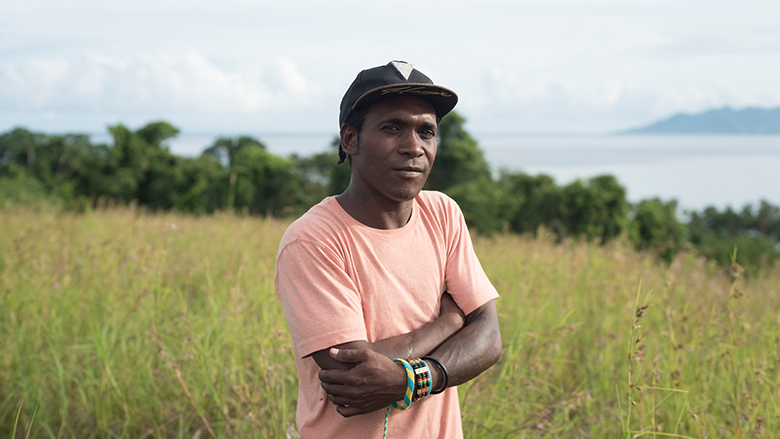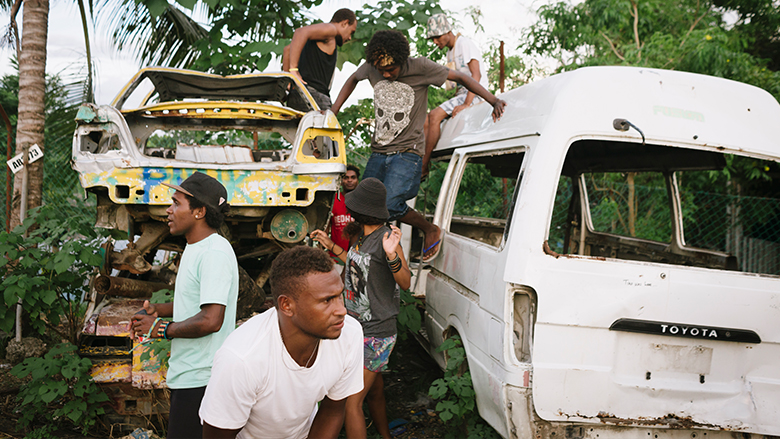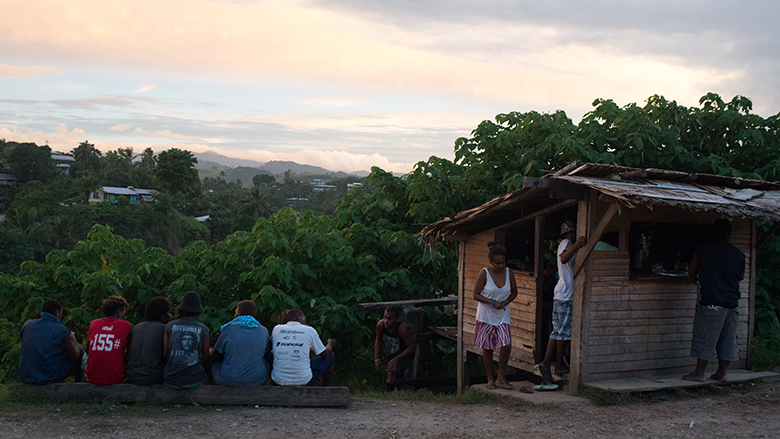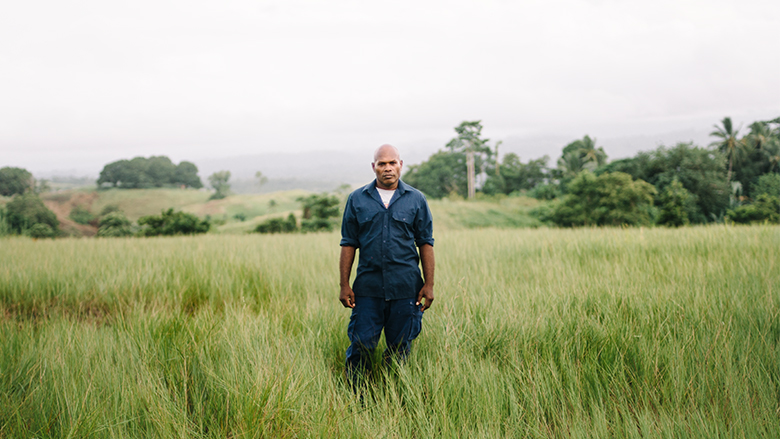Charles grew up in the island nation’s Western Province with his mother. Despite limited job and education opportunities, he stayed there during The Tensions (1998 to 2003), a period of ethnic conflict largely between militants from Malaitan and Guadalcanal provinces. As a part-Malaitan, Charles knew it would be unsafe to travel.
When the conflict eased, Charles moved to Honiara at age 15 for his final years of high school. He then went to a vocational school in Malaita, where his father lived, for two years before returning to Western Province to complete his practical placement in carpentry.
While some Solomon Island schools provide meals for students, the vocational school only offered lunch. With no money to buy food to fill in the gaps, Charles was constantly hungry and found it difficult to concentrate.
“I didn’t finish vocational school because I was always hungry,” he said. “In the morning we didn’t have breakfast, we only had lunch. I didn’t have money to buy anything. That’s why I got fed up.”
Now he was a dropout, like many of his friends.
For three years, Charles stayed at his father’s village “hanging around.” Eventually he returned to Honiara to work for a relative, but when the job finished, he became another of the many unemployed Solomon Island youth looking for work in the capital.
To Charles, the key is to get a job and some money.
“If we work, then I think our ways would change,” he said. “We’d stop drinking or hanging out with friends. We’d be more focused on the job. I’m interested in a job like a prison warder. Like a job that’s suitable to someone like me with my education background. I’ve applied to a factory that produces beer and [applied to become] a prison warder.”
However, nothing has come through for Charles yet.
“It’s hard to find a job because of competition,” he said. “Where there are jobs, you need a qualification to get hired. Some of my friends with qualification are still looking for work.”
He continued: “I am worried about it because I don’t have a job and I think about my future. What if I just stay like this?”




